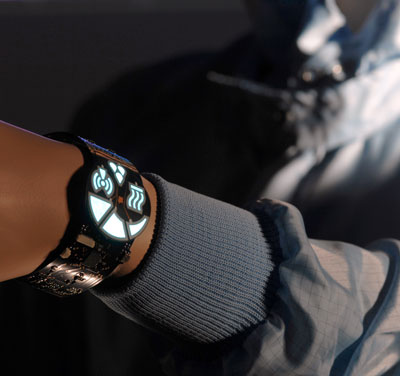 A small blood lab that fits into the pocket of a jacket can quickly analyze the risk of blood clots in legs prior to a long distance flight; a sensor wristband for measuring electric smog can warn pacemaker patients of life-threatening exposure: 'Smart plastics' can turn such tools into reality.
A small blood lab that fits into the pocket of a jacket can quickly analyze the risk of blood clots in legs prior to a long distance flight; a sensor wristband for measuring electric smog can warn pacemaker patients of life-threatening exposure: 'Smart plastics' can turn such tools into reality.
Apr 19th, 2010
Read more
A major new suite of laboratories, to be opened next week, will help scientists in the Green Chemistry group at the University of York to advance research into clean synthesis, catalysis, novel materials and the application of renewable resources.
Apr 19th, 2010
Read more
A new experiments shows that photon pairs increase the frequency of the oscillation between light and matter over individual photons. These findings agree with theoretical predictions first made in the 1960s.
Apr 19th, 2010
Read more
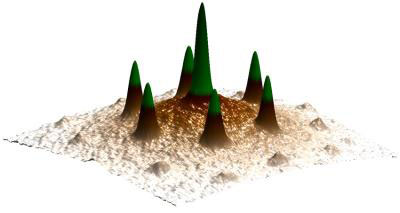 Investigators from Hanover and Braunschweig measure how the electronic properties of graphene can be controlled with purposefully used roughnesses.
Investigators from Hanover and Braunschweig measure how the electronic properties of graphene can be controlled with purposefully used roughnesses.
Apr 19th, 2010
Read more
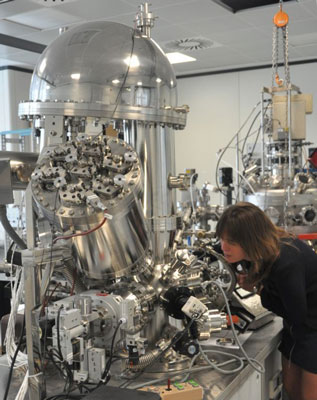 Laboratories awarded certification according to the ISO/IEC 17025 standards, renowned throughout the world as indication of technical quality and competence for testing and calibration laboratories.
Laboratories awarded certification according to the ISO/IEC 17025 standards, renowned throughout the world as indication of technical quality and competence for testing and calibration laboratories.
Apr 19th, 2010
Read more
Flexibel, druckbar und preiswert: Elektronikbauteile, deren Aufbau auf Nanopartikeln und organischen Molekuelen beruht, erobern zunehmend den Markt. Drei Beispiele fuer Anwendungen zeigt der Exzellenzcluster Engineering of Advanced Materials (EAM) der Universitaet Erlangen-Nuernberg auf der Hannover Messe vom 19. - 23. April 2010.
Apr 19th, 2010
Read more
A working group headed by Professor Rainer Waser from Forschungszentrum Juelich and RWTH Aachen University has developed a novel switching concept and the related technology for so-called memristor chips. With their research findings, the scientists are preparing for a paradigm shift in the architecture of computer chips.
Apr 19th, 2010
Read more
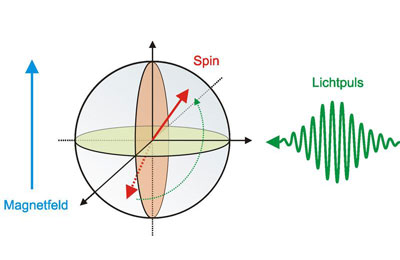 Superschnell und leistungsstark: So sollen Quantencomputer einmal sein. Doch vor der Realisierung dieses voellig neuen Computertyps stehen noch technische Huerden. Ueber Fortschritte auf diesem Gebiet berichten Physiker der Uni Wuerzburg.
Superschnell und leistungsstark: So sollen Quantencomputer einmal sein. Doch vor der Realisierung dieses voellig neuen Computertyps stehen noch technische Huerden. Ueber Fortschritte auf diesem Gebiet berichten Physiker der Uni Wuerzburg.
Apr 19th, 2010
Read more
The 2010 Korea-China joint research program, 'New Photovoltaic Polymers and Advanced Flexible Plastic Solar Cells', was officially initiated on April 15-16, 2010 at the Qingdao Institute of Bioenergy and Bioprocess Technology (QIBEBT), Chinese Academy of Sciences.
Apr 19th, 2010
Read more
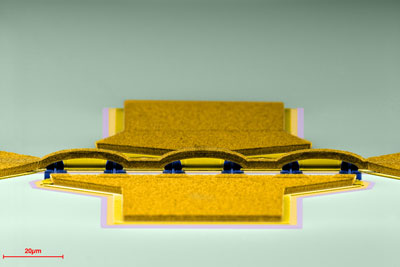 Transistors, the cornerstone of electronics, are lossy and therefore consume energy. Researchers from the ETH Zurich and EPF Lausanne have developed transistors targeting high switching speeds and higher output powers. The devices can be used more efficiently as conventional transistors, so as to reduce energy consumption and CO2 emissions.
Transistors, the cornerstone of electronics, are lossy and therefore consume energy. Researchers from the ETH Zurich and EPF Lausanne have developed transistors targeting high switching speeds and higher output powers. The devices can be used more efficiently as conventional transistors, so as to reduce energy consumption and CO2 emissions.
Apr 19th, 2010
Read more
We invite Authors to participate with contributions in all topics related to Neuroengineering, from novel (nano)materials interfacing the nervous system or as tools for basic research, to novel enabling technologies, and from basic neurobiology and electrophysiology to neuroprosthetics. We aim at covering topics across levels of investigations, from the single-neuron to the network- and the system levels.
Apr 18th, 2010
Read more
A research team at RIKEN has succeeded for the first time in selectively controlling for reaction products in the dissociation of a single water molecule on an ultrathin film.
Apr 18th, 2010
Read more
 Scientists have developed a brain implant that essentially melts into place, snugly fitting to the brain's surface. The technology could pave the way for better devices to monitor and control seizures, and to transmit signals from the brain past damaged parts of the spinal cord.
Scientists have developed a brain implant that essentially melts into place, snugly fitting to the brain's surface. The technology could pave the way for better devices to monitor and control seizures, and to transmit signals from the brain past damaged parts of the spinal cord.
Apr 18th, 2010
Read more
A team of Houston scientists has unveiled a new technique that uses magnetic nanobeads to levitate cells, allowing them to grow into three-dimensional structures.
Apr 17th, 2010
Read more
Using easily prepared gold nanocages that are able to escape from the blood stream and accumulate in tumors, a team of investigators from the Washington University in St. Louis has shown that they can use laser light to kill human tumors in mice.
Apr 17th, 2010
Read more
Researchers have long known that certain peptides are capable of killing cells by inserting themselves into the cell membranes and disrupting normal membrane structure and function. Now, researchers have learned how to deliver these cytotoxic peptides to tumor cells using self-assembling nanofibers that can slip into cancer cells and allow the toxic peptides to do their job from inside the cell.
Apr 17th, 2010
Read more
 A small blood lab that fits into the pocket of a jacket can quickly analyze the risk of blood clots in legs prior to a long distance flight; a sensor wristband for measuring electric smog can warn pacemaker patients of life-threatening exposure: 'Smart plastics' can turn such tools into reality.
A small blood lab that fits into the pocket of a jacket can quickly analyze the risk of blood clots in legs prior to a long distance flight; a sensor wristband for measuring electric smog can warn pacemaker patients of life-threatening exposure: 'Smart plastics' can turn such tools into reality. 





 Subscribe to our Nanotechnology News feed
Subscribe to our Nanotechnology News feed